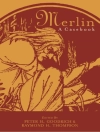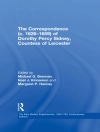This book follows the renunciation story in Borges and beyond, arguing for its centrality as a Borgesian compositional trope and as a Borgesian prism for reading a global constellation of texts. The renunciation story at the heart of Buddhism, that of a king who leaves his palace to become an ascetic, fascinated Borges because of its cross-cultural adaptability and metamorphic nature, and because it resonated so powerfully across philosophy, politics and aesthetics. From the story and its many variants, Borges’s essays formulated a ‘morphological’ conception of literature (borrowing the idea from Goethe), whereby a potentially infinite number of stories were generated by transformation of a finite number of ‘archetypes’. The king-and-ascetic encounter also tells a powerful political story, setting up a confrontation between power and authority; Borges’s own political predicament is explored against the rich background of truth-telling renouncers. In its poetic variant, the renunciationarchetype morphs into stories about art and artists, with renunciation a key requirement of the creative process: the discussion weaves in and out of Borges to highlight modern writers’ debt to asceticism. Ultimately, the enigmatic appeal of the renunciation story aligns it with the open-endedness of modern parables.
Tabela de Conteúdo
1. Introduction: Leaving the Palace.- 2. A Borgesian Morphology: Renunciation, Morphology and World Literature.- 3. A Lesson for the King: Renunciation and Politics.- 4. From Ascetic to Poet: Poetic Renunciation.- 5. Modernity’s Enigmatic Parables of Renunciation.- 6. Conclusion: Renunciation Stories and Wandering Kings.
Sobre o autor
Dominique Jullien is Professor of Comparative Literature and French Studies at the University of California, Santa Barbara, USA, with previous appointments at Columbia University, Harvard University, and Saint-Gallen University. She has published widely on Borges, Proust (
Proust et ses modèles), travel narratives (
Récits du Nouveau Monde), and East-West relations (
Les Amoureux de Schéhérazade).












